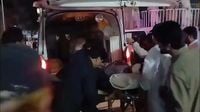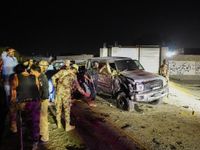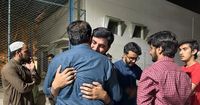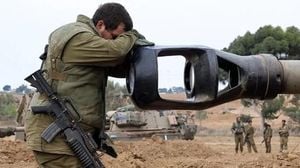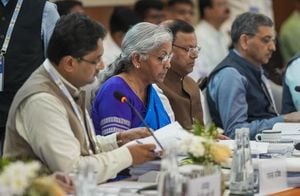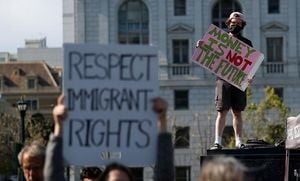On the evening of September 2, 2025, a wave of violence shook southwestern Pakistan as a suicide bomber targeted a political rally in Quetta, the capital of Balochistan province. The attack, which occurred just as supporters of the Balochistan National Party (BNP) were dispersing from Shahwani Stadium, left at least 13 people dead and more than 30 wounded, according to police and hospital officials cited by The Associated Press and Reuters. The explosion, which ripped through the stadium’s parking area near a graveyard on Quetta’s outskirts, marked one of the deadliest attacks in the region this year.
The rally had drawn hundreds of BNP supporters to commemorate the anniversary of Sardar Ataullah Mengal’s death, a veteran nationalist leader and former provincial chief minister. His son, Sardar Akhtar Mengal, the current BNP chief and a vocal critic of the central government, was present at the event but escaped unharmed. However, some of his supporters were among those killed and injured in the blast, as confirmed by senior police officer Usama Ameen and government spokespersons.
Waseem Baig, a spokesman for a government hospital in Quetta, told Reuters that the facility had received 13 bodies and dozens of wounded, several of whom remained in critical condition. The chaos extended into the night as emergency services worked to treat the injured and authorities launched an immediate investigation into the bombing. The body parts of the suspected attacker were recovered at the scene, local police chief Majeed Qaisrani reported.
Though no group immediately claimed responsibility for the attack, suspicion quickly fell on separatist and extremist organizations that have long plagued Balochistan. The province, despite being Pakistan’s largest and richest in natural resources, is also its most impoverished and underdeveloped, regularly ranking at the bottom of human development indices. The BNP has consistently advocated for greater autonomy, increased local investment, and more control over the province’s resources—issues that continue to fuel ethnic and political tensions.
Balochistan Chief Minister Sarfraz Bugti condemned the bombing in strong terms, describing it as a "cowardly act of the enemies of humanity" and ordering the best possible medical care for the wounded, as well as a high-level probe to bring the perpetrators to justice. Meanwhile, Pakistan’s Interior Minister Mohsin Naqvi leveled accusations against “India-backed terrorists and their facilitators,” claiming they sought to destabilize the country by targeting civilians. However, as The Associated Press noted, Naqvi offered no evidence to support his allegation. Pakistan’s government and provincial authorities have, in recent months, repeatedly accused India of supporting both the Pakistani Taliban and Baloch separatists—charges that New Delhi consistently denies.
This attack was not an isolated incident. On the same day, violence erupted in other regions of Pakistan, underscoring the persistent threat posed by militant groups. Near the Iran border in Balochistan, five paramilitary personnel were killed when a homemade bomb exploded as their convoy passed through a remote district, according to The Logical Indian. Elsewhere, in the city of Bannu in Khyber Pakhtunkhwa province, a suicide bomber rammed an explosives-laden vehicle into the gate of a paramilitary camp, setting off a 12-hour gun battle that left six soldiers and five attackers dead. The militant group Ittehad-ul-Mujahideen Pakistan claimed responsibility for the Bannu assault, as reported by multiple outlets.
The violence did not relent the following day. On September 3, gunmen opened fire on a vehicle in Kurram district, Khyber Pakhtunkhwa, killing five Sunni Muslims before fleeing into the mountains. Kurram has seen repeated outbreaks of sectarian violence in recent years, further complicating the security situation in Pakistan’s northwest.
These attacks come at a time when Balochistan’s struggle with insurgency and underdevelopment remains acute. Since 2014, clashes between Pakistani forces and armed Baloch insurgents have claimed hundreds of lives annually, and 2024 was recorded as the deadliest year in nearly a decade. According to Al Jazeera, 2,526 people were killed in attacks across Pakistan last year, including nearly 700 security personnel, more than 900 civilians, and about 900 armed fighters. Despite government claims that the insurgency has been subdued, the region continues to experience sporadic but devastating violence.
The BNP, the party at the center of Tuesday’s rally, has long positioned itself as a champion for the rights and welfare of the Baloch people. Its leaders, including Akhtar Mengal, frequently demand the release of missing Baloch nationalists and greater local control over resources—demands that have often put them at odds with the central government. The party’s rallies, such as the one targeted this week, serve as both a platform for political expression and a flashpoint for violence.
Chinese infrastructure projects tied to the Belt and Road Initiative have further complicated the situation in Balochistan. While these projects promise economic development, many locals feel the benefits have largely bypassed indigenous populations, exacerbating feelings of marginalization and fueling calls for autonomy or even independence. The Balochistan Liberation Army and other separatist groups have repeatedly targeted security forces and workers from other provinces, particularly those associated with major infrastructure initiatives.
Tuesday’s attacks drew swift condemnation from across Pakistan’s political spectrum. While government officials called for unity and resilience, opposition leaders and civil society groups highlighted the need for a comprehensive approach to address the region’s longstanding grievances. As The Logical Indian observed, “These attacks highlight the devastating human cost of unresolved political and ethnic grievances, compounded by regional instability and extremist agendas.” The publication urged all stakeholders to “promote harmony, empathy, and inclusive development while rejecting violence as a means to any end.”
For families in Quetta and beyond, the aftermath of the bombing is painfully personal. At local hospitals, men mourned the deaths of relatives killed in the blast, their grief a stark reminder of the ongoing toll that violence exacts on communities across Pakistan. As investigations continue and emergency services work to save the lives of the critically injured, the nation is left to grapple with the persistent specter of militancy and the urgent need for peace and reconciliation.
With security concerns heightened and authorities on alert, many in Balochistan and the wider region are left wondering what it will take to end the cycle of violence and bring lasting stability to Pakistan’s troubled western provinces.
